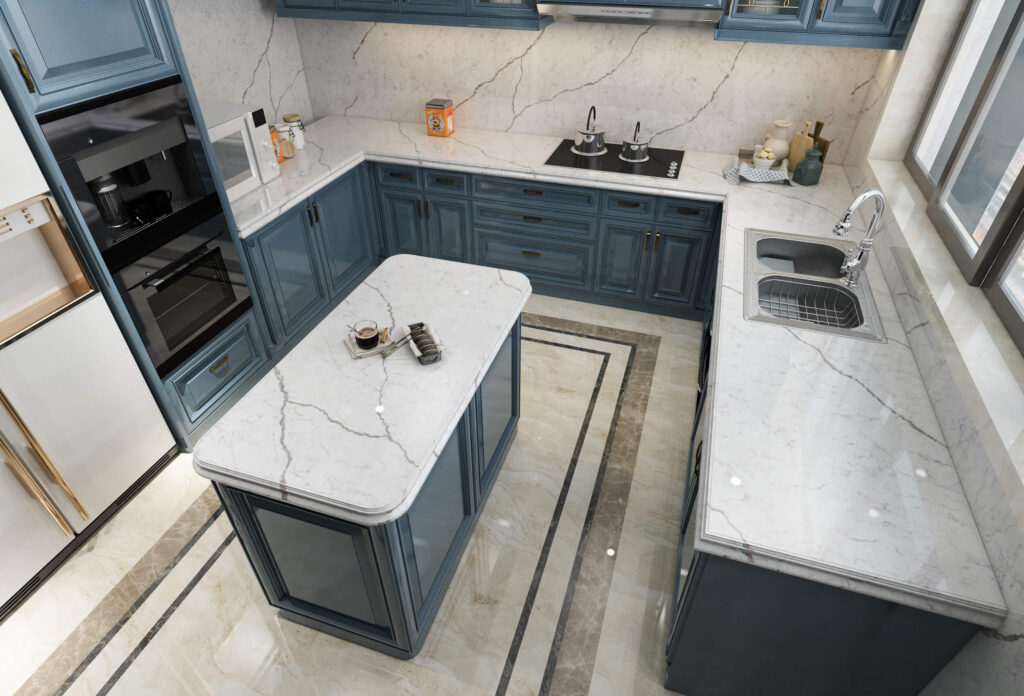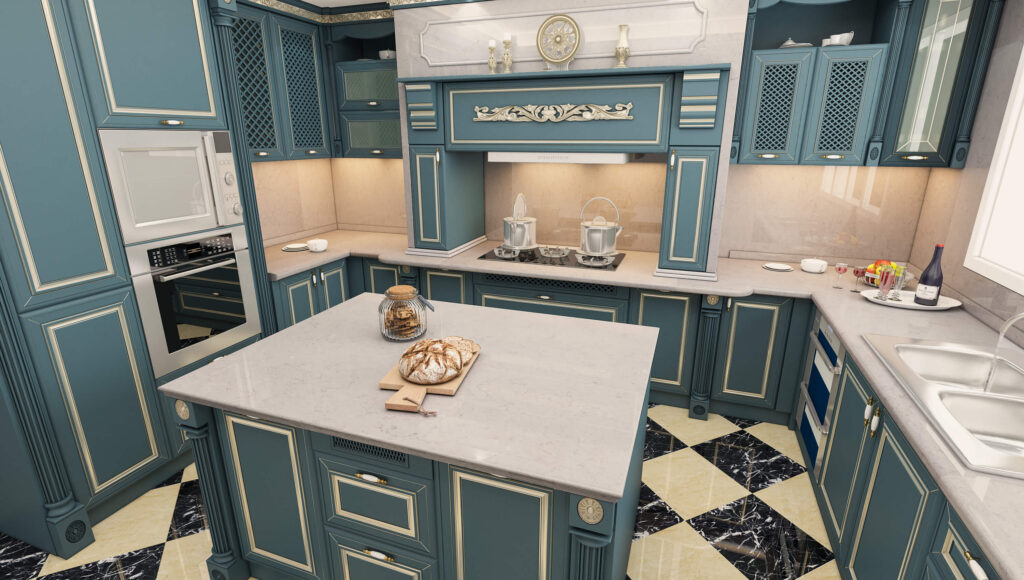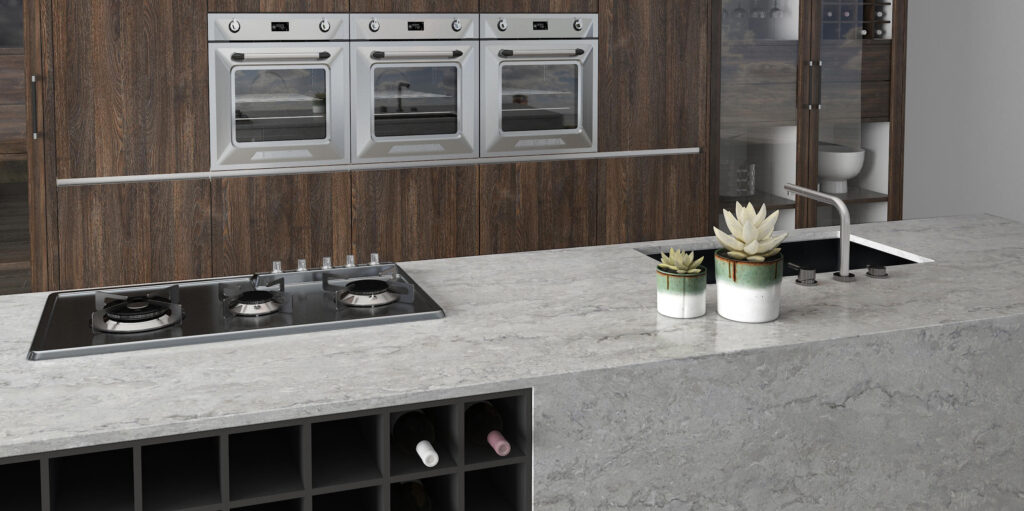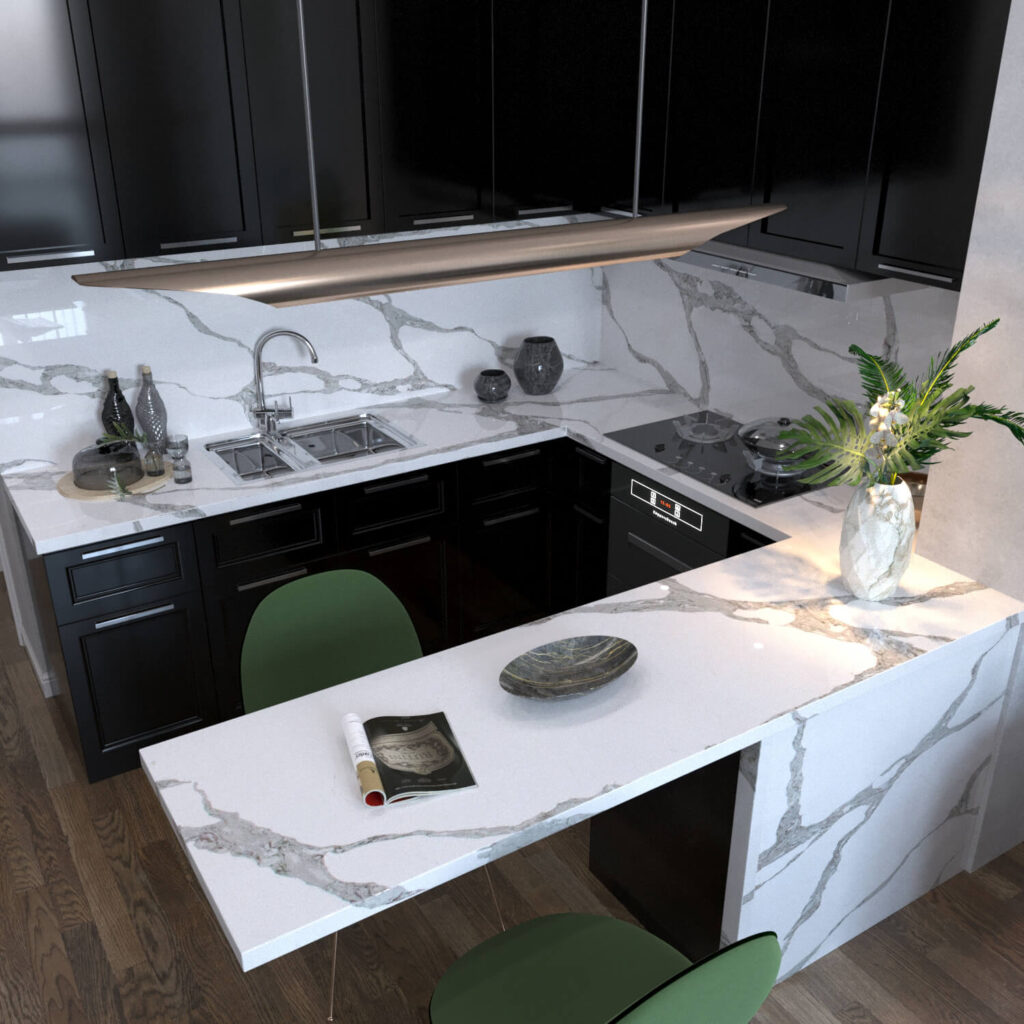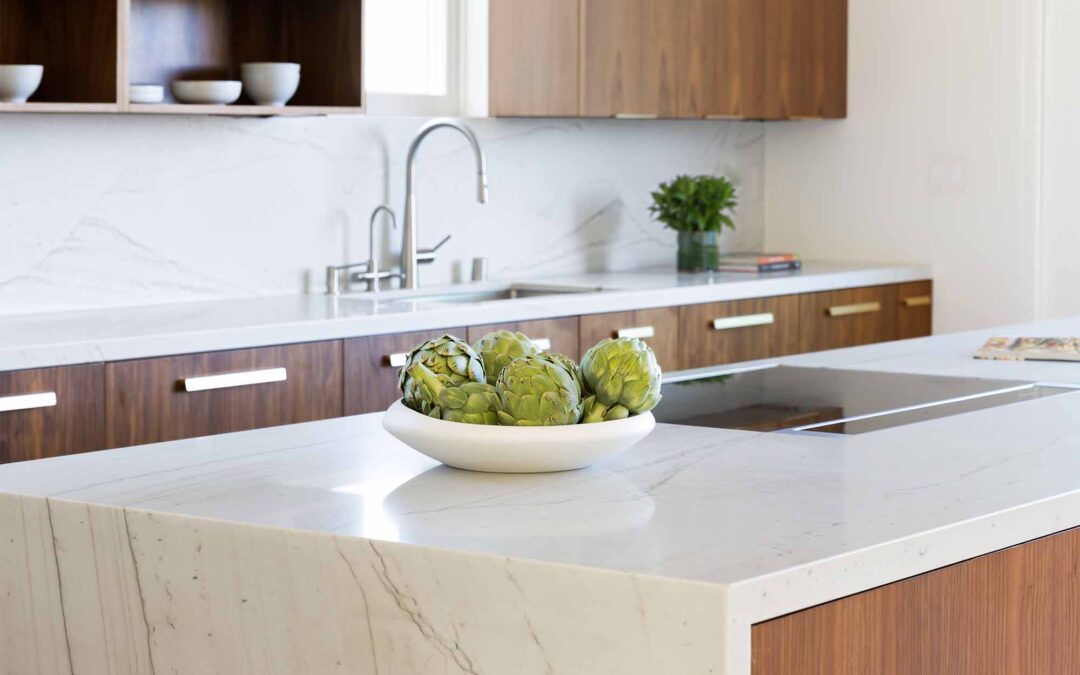
Patina vs. Perfect
What is patina?
Patina is a natural aging that adds beauty and character. Patina on wood can appear as wear marks—think of stair treads that have indentations from where family members have gone up and down. Each mark is nostalgic and can tell the story of Christmas mornings sneaking down the stairs and running back up with joyous treasures. The same is true for handrails, banisters, door handles, flooring, tabletops, and countertops. Many religions believe in “touching icons” made of bronze or metal. These items are touched and rubbed so much that the finish is noticeably worn, indicating its truly cherished status. In China, the appearance of “oldness” can contribute to the concept that stone can be elegant. In Japan, patina is viewed as an impression of antiquity and is highly valued.
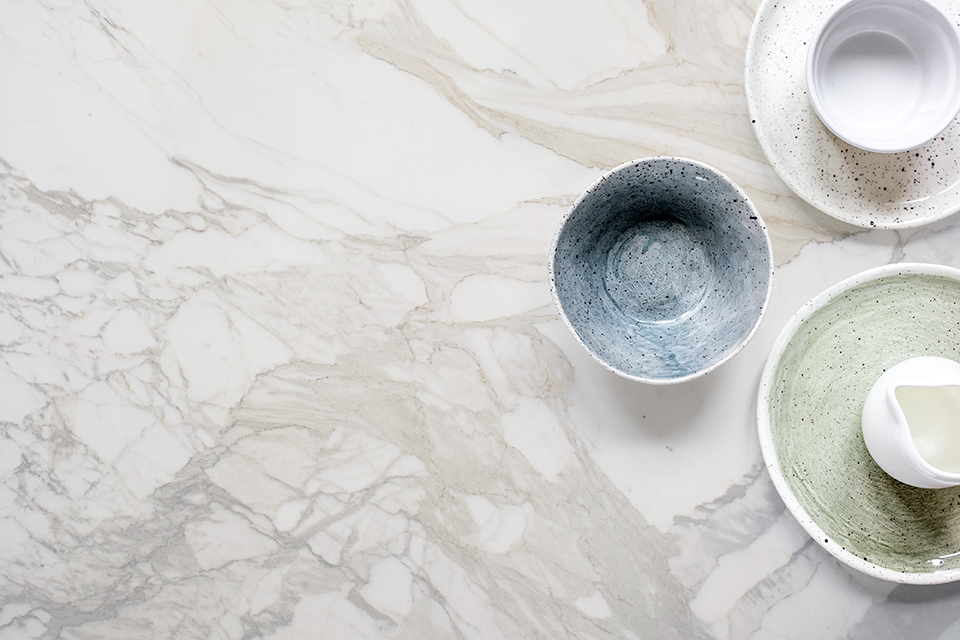
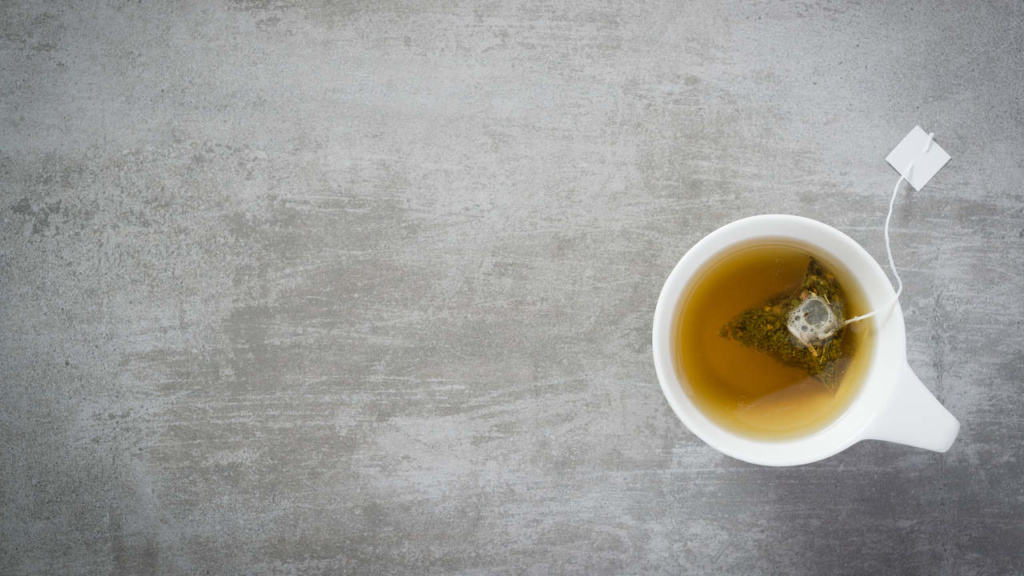
All materials show signs of use and change that alter their appearance over time. These significant indicators are treasured reminders of the passage of time and that nothing is truly constant. Natural stone is no exception.
some things get better with age.
Western cultures may not be as forgiving but patina can be viewed as part of the beauty of time, which is why many manmade surfacing materials today actually mimic the aging process in their finishes using photographic techniques. Marble’s popularity began in ancient Rome and Greece, where white and off-white marble was used in art and architecture by the world’s greatest designers. From Michelangelo’s David to the Taj Mahal to courtyards and cathedrals, marble has been the stone of choice for centuries. Marble’s elegant movement and distinctive veins are prized to this day, when its patina only adds to its appreciated beauty.
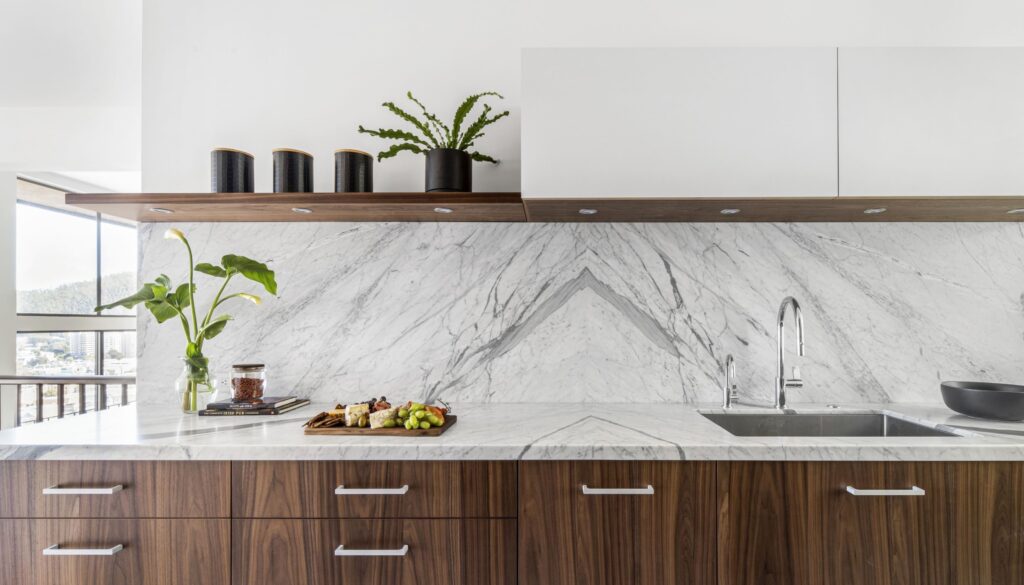
Patina versus Perfect: choosing a stone surface for you home
Patina is inevitable on all natural stone surfaces. Setting your expectations for future visual effects at the onset of your natural stone surface selection process is just as important as the regular maintenance involved to keep the patina at the state you enjoy.
For example, if you want your countertops to look like they were installed yesterday, polished white marble might not be your best decision. But if you love strong veining, classic upscale looks, and you’re aware that lemon and other acidic ingredients can leave etch marks, go ahead and take the plunge with a marble countertop.
Patina on stone—see if you can learn to love it.
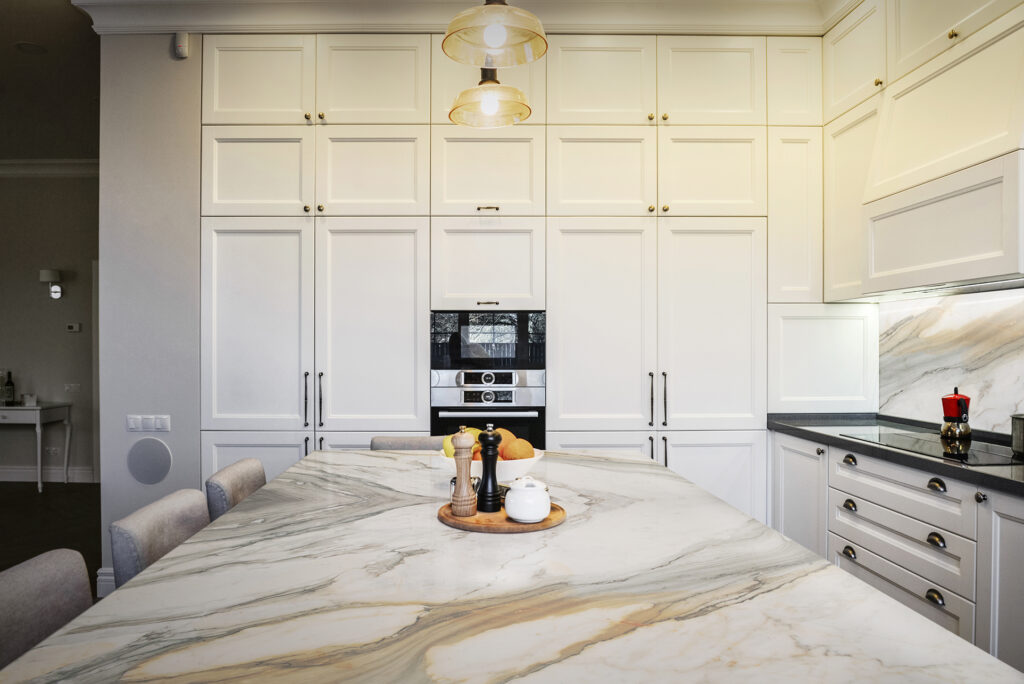
Patina on your countertop surface, not your thing?
Let’s say you love the look of stone but equate a scratch or stain with neglect or mistreatment. There’s a countertop surface for you, thanks to today’s technology. Many engineered surfaces are impervious to stains, scratch-resistant, and super durable, but maybe, most importantly, they’re beautiful and can look stunning as your kitchen or bathroom countertop. Porcelain slabs are a perfect example of beauty and functionality. These slabs are made of clay that’s been fired at high temperatures, and imprinted with a hyper-realistic photo of actual stone (using an ultra-high-definition inkjet printer).
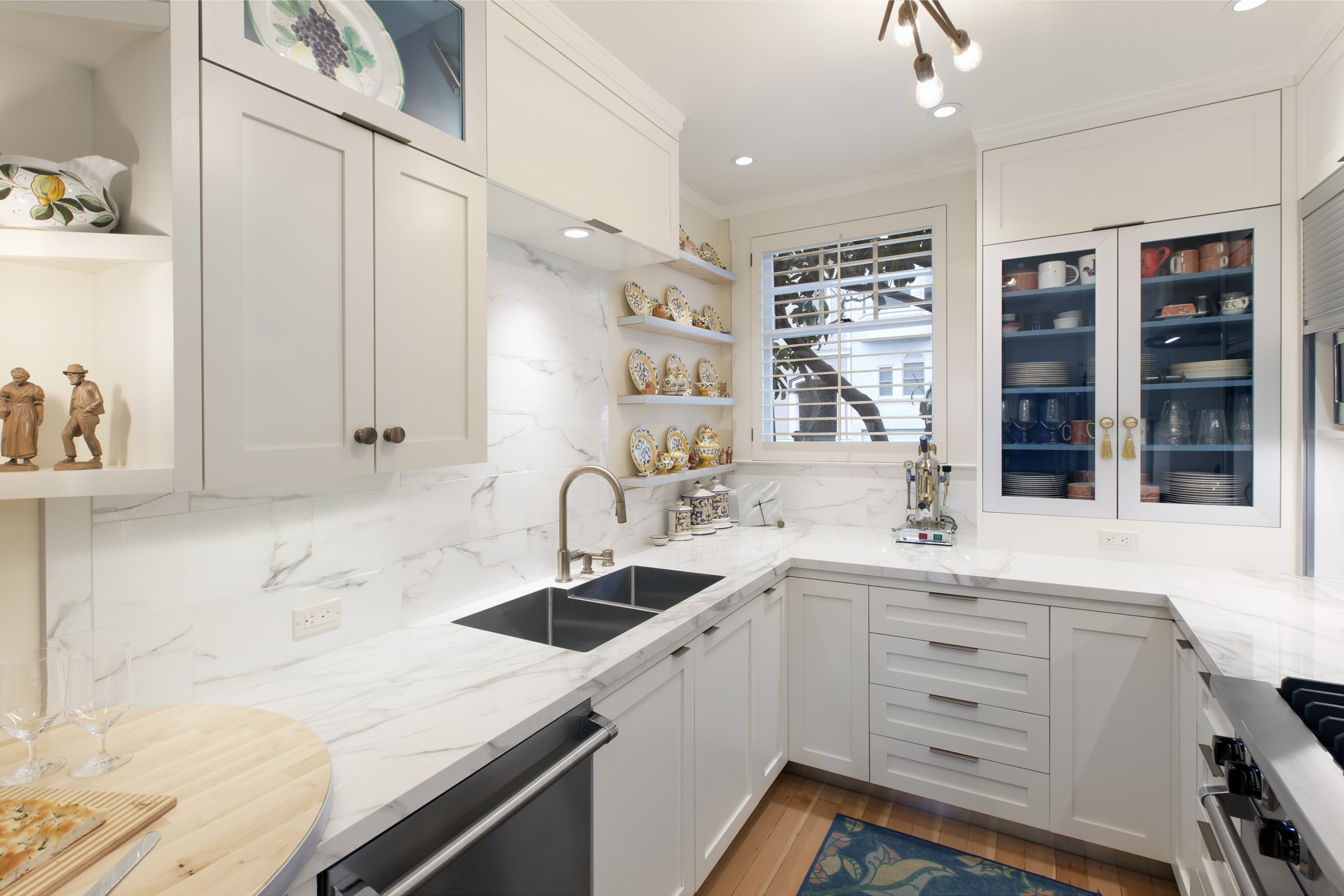
Care and maintenance of your investments.
Stone care: Holding back the signs of age. Yes. Natural stone slabs require sealing. And because marble is sensitive to acids, you’ll need to use a cutting board religiously and wipe away tomato sauce and lemon juice pronto. But over the years, marble develops a patina—which is part of its charm and the beauty of it. And sealing your marble is a DIY project that doesn’t take much time.
Natural stone care tips (marble, granite, quartzite).
- Use a neutral cleaner or mild soap with warm water and a non-abrasive cloth for daily cleaning.
- Avoid using vinegar, lemon, or other acid-based cleaners such as bathroom cleaners and tub and tile cleaners.
- Use coasters, trivets and mats under hot items or items that can scratch the stone.
- Minimize soap scum near sinks or on shower walls by regularly using a squeegee.
- Re-seal granite and quartzite surfaces yearly and more porous stones every 8 months. (Noticeable water spots at the sink faucet on kitchen and bathroom countertops is a sign your surface is ready for re-sealing.)
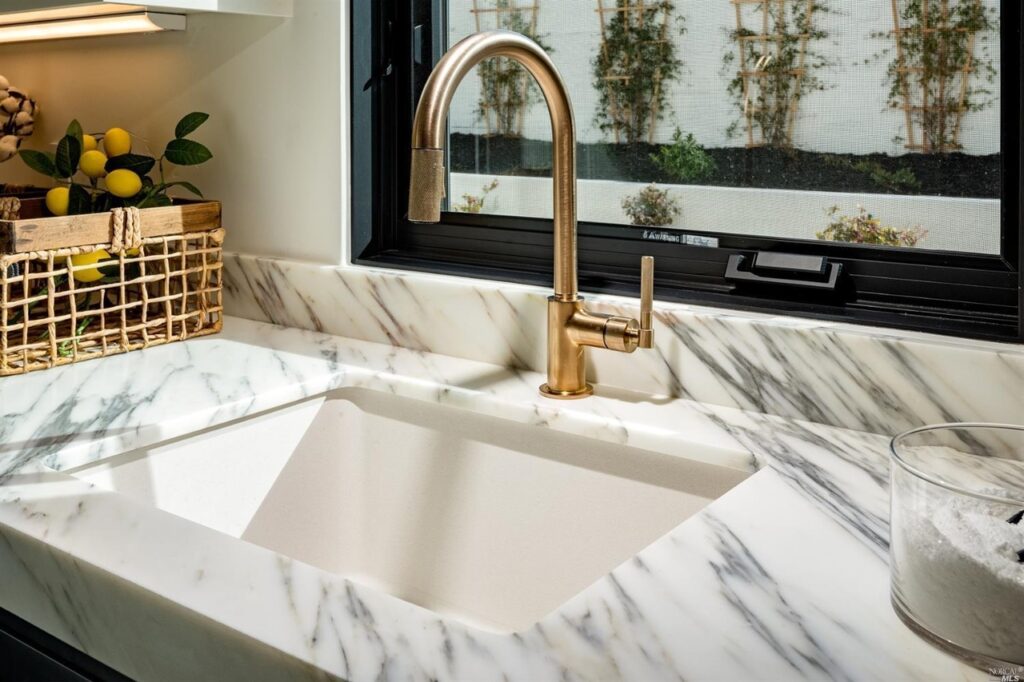
Engineered stone care tips.
Pental Quartz® is scratch resistant, stain-resistant, and heat-resistant up to 250° F. Honed surfaces may show fingerprints and other signs of daily living more easily than polished surfaces, so more frequent maintenance according to the below techniques may be required.
- Use a cloth or sponge with mild soap and warm water for daily cleaning. Rinse soap thoroughly to remove soap residue which can affect the appearance of the surface.
- Clean spills immediately and rinse surface thoroughly with water.
- Remove stubborn spots using a soft, non-abrasive cloth or sponge with a mild and neutral cleaner along with plenty of water.
- Avoid using harsh chemicals such as bleach cleaners on the surface.
- Never cut or chop directly on quartz. Pental Quartz® is scratch resistant but not scratch proof.
- Use a hot pad or trivet between hot pans or plates and the surface. Direct contact with extremely high heat can cause damage (such as with crock pots, electric skillets, etc.).
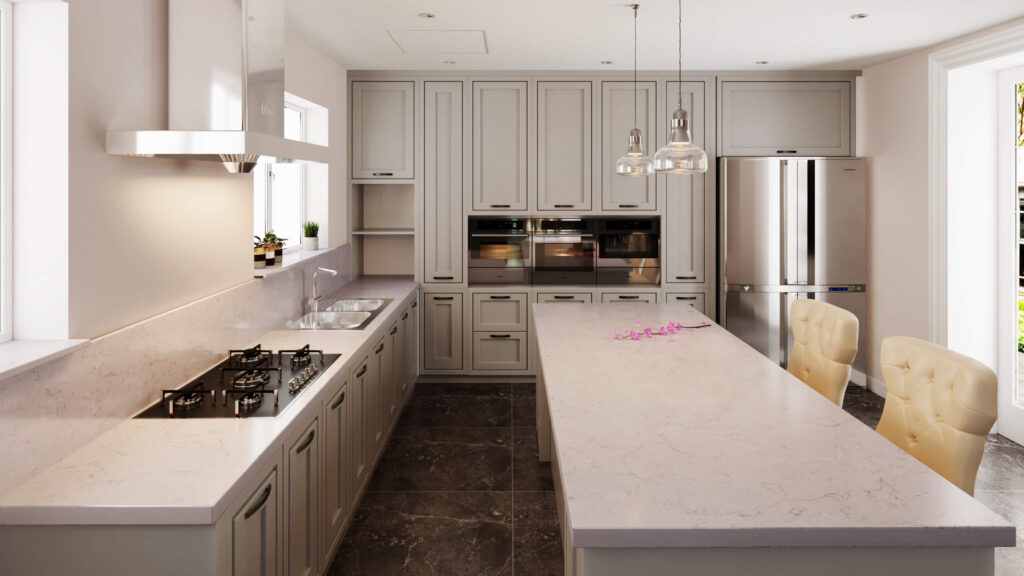
Porcelain care tips:
Porcelain touts resistance to scratches, acid, impacts and fire. It is also waterproof. Regardless of these properties, like all other surfaces, it is recommended that highly staining products like coffee and red wine are cleaned immediately.
- Use a damp microfiber cloth or soft sponge and neutral liquid detergent for daily cleaning.
- Stubborn stains may be removed using a low-abrasion sponge and neutral cleaner.
- Do not use steel scouring pads for stains or cleaning.
- Substances such as oven cleaners, acids or dyes must be removed immediately by washing the surface with water.
- It is recommended to use hot mats and trivets under hot pans though the product offers great resistance to heat.
- Use chopping boards when cutting, as ceramic knives can scratch the surface.
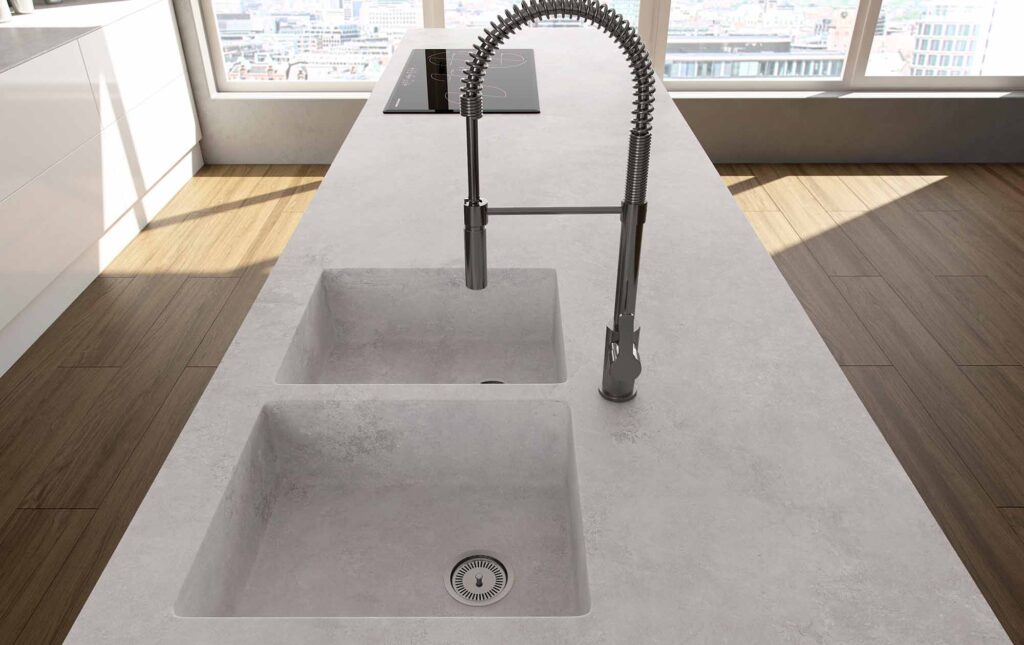
Appreciating stone’s beautiful compositions:
Viewing stone choices at IRG.
IRG’s immense in-stock selection of natural and engineered stone slabs offers you the perfect opportunity to compare and contrast full slab options for your home. Keep your mind open to all surfaces, but be educated, not afraid. The IRG stone experts can guide you through your decision-making process to find the perfect solution for your life, your lifestyle, and your budget.







